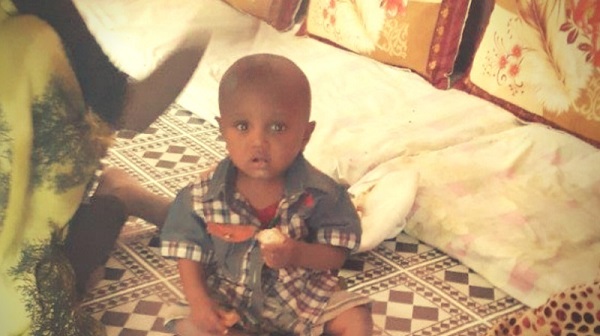
International Medical Corps, with support from the European Union, has been implementing emergency health and nutrition programming in El Niño-affected areas of Ethiopia
Hamiza’s Story
Story Hamiza Mohamed was only two years old when his grandmother brought him in to a health facility, urgently seeking the help needed to save the little boy’s life.
“He was malnourished and weak. His hands and legs were swollen and even his face.”
Sadly, Hamiza’s case is not unusual. Like many households in Ethiopia affected by the El Niño-inflicted drought, Hamiza’s father has struggled to support a family of six on his meagre earnings from trading cattle. Food shortages, combined with poor living conditions, led to quick deterioration in Hamiza’s health.
International Medical Corps, with support from the European Union, has been implementing emergency health and nutrition programming in El Niño-affected areas of Ethiopia, focused on mitigating effects of the drought by improving nutrition and water, sanitation and hygiene throughout the country, as well as supporting livelihoods amongst affected communities.
Chefa Robit Stabilization Center is one of many centers that has been renovated as part of this initiative – allowing it to treat children suffering from severe acute malnutrition.
This is where Hamiza was brought by his grandmother. Upon arrival, the little boy was immediately attended by a team of health workers trained by International Medical Corps. Along with 17 other children, Hamiza received treatment in the centre – and it was not long before he was discharged, now at a healthy weight.
In addition, Hamiza’s mother Jemila received training on family planning, complementary feeding, safe methods of food preparation, the importance of breastfeeding, as well as other ways to help keep her family healthy.
“I have improved my knowledge of proper feeding practice through the training provided by the health workers,” Jemila says.
“I now have a better understanding of how I can prevent malnutrition. I know what type of food items to combine while preparing food for a child and the frequency and time interval a child should be fed.”
Looking at her son – who is now healthy and smiling – Jemila adds gratefully: “I see a big positive change in my child’s health.
“I am so happy – my family is very healthy now. I also have a new child and I breastfeed exclusively thanks to the support I received.”
Source: International Medical Corps
——
Other stories:
- Ethiopia Taking Steps to Address Drought Conditions
- Drought Is Pushing Food Prices up Sharply in East Africa: FAO
- NDRMC: The Number of Drought Affected People Reaches 7.6 Million
- Minister James Wharton: UK Will Stand by People of Ethiopia Affected by Severe Drought
- German Development Ministry Pledges Additional 100 Million Euros to Drought-affected Horn of Africa
